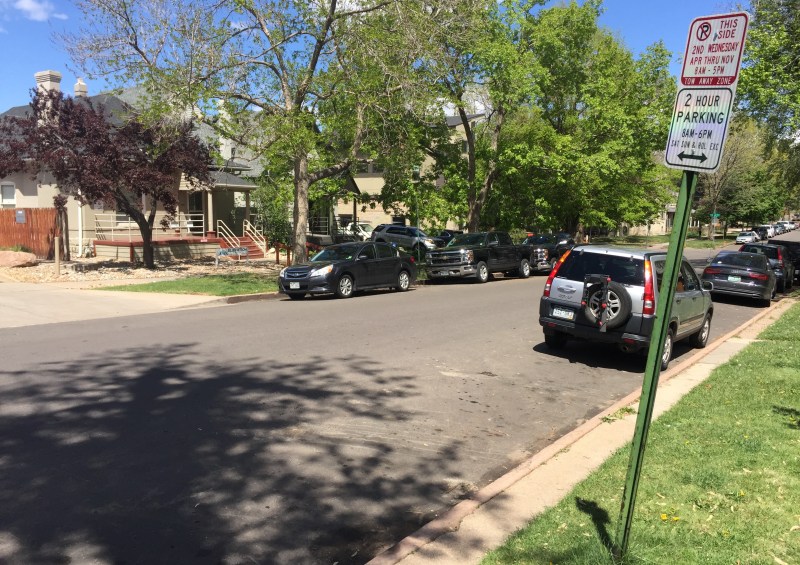Today’s Your Chance to Speak Up for Affordability and Against Parking Mandates

The Denver City Council will decide later today whether to make housing less affordable by codifying parking requirements for small lots. There’s still time to speak out against the policy — the Council will hold a public hearing and final vote at 5:30 p.m.
Here’s what’s at stake and why you should sign up to speak.
Until last August, it was legal to develop small parcels without building parking. And for good reason: Parking is expensive to build, and requiring it discourages development, particularly on these constrained lots of 6,250 square feet or less. That means fewer homes and higher rents in a city with a dire housing shortage.
The lack of parking requirements for these lots was a progressive feature in the zoning code. Then the Council voted to suspend it to buy time to figure out how to introduce parking mandates where none existed before. Members were heavily swayed by complaints from people upset at the prospect of more people jockeying for free curbside parking spots.
When every member voted for the moratorium, they were voting, in effect, for a less affordable, more traffic-choked future.
Then things got worse.
Last month the Council voted 7-6 to send Councilman Jolon Clark’s version of the new zoning code to tonight’s vote. Clark’s bill requires more parking than an earlier compromise forged by Council President Albus Brooks. The damper effect on housing construction would be stronger.
Clark’s amendment was completely regressive but politically sly. He included a toothless, nonbinding amendment to create a “transportation demand management” program, where developers would pitch in for transit, biking, and walking improvements.
But Clark’s TDM amendment was just a fig leaf — a show of caring about sustainable transportation to mask a policy that will result in fewer homes getting built, more residents opting to drive, and destinations spread farther apart.

All this damage to Denver’s affordability and transportation system won’t even address a real problem.
Denver Public Works may not characterize it this way, but a recent inventory of North Capitol Hill on-street parking spots shows that complaints over parking shortages in that neighborhood are hyperbolic. There’s actually plenty of parking, as Streetsblog reported.
This survey was not good enough for Councilman Rafael Espinoza, however, who said that if people have to cross a street to access a parking space, it doesn’t count:
There is no myth, to get to your numbers, you have to cross park ave, or move from time restricted spaces. Your facts, aren't.
— Rafael Espinoza (@CD1Rafael) April 18, 2017
The parking inventory [PDF] clearly shows that 76 percent of parking spots in this area are either completely unrestricted, or limited to two hours between 8 a.m. and 6 p.m., which favors residents who park there overnight.
So it all comes down to tonight. Last month, Clark’s amendment won by a hair, with City Councilman Paul Lopez on the fence. A small swing can prevent this regressive policy change from passing.
So sign up to speak and let elected officials know how you feel.
This article was changed to reflect the correct


